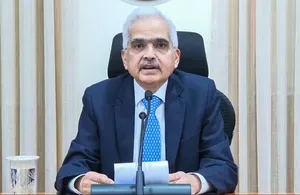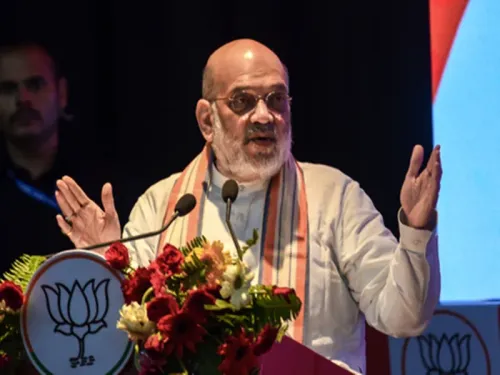RBI Reduces Cash Reserve Ratio by 0.5% to Stimulate Growth, Repo Rate Remains Unchanged

Mumbai, Dec 6 (NationPress) The Reserve Bank of India (RBI) has announced a reduction in the cash reserve ratio (CRR) for banks by 0.5%, aiming to increase the amount of funds available for lending to stimulate economic growth. The key policy repo rate remains unchanged at 6.5%, reflecting the bank's focus on controlling inflation.
The CRR is now set at 4%, down from 4.5%. This marks the first cut in the CRR since March 2020. The CRR represents the fraction of deposits that banks must retain as idle cash within the system.
This adjustment is expected to inject approximately Rs 1.16 lakh crore into the banking sector and lower market interest rates.
The monetary policy decision aims to strike a careful balance between managing inflation and boosting growth in a slowing economy.
According to RBI Governor Shaktikanta Das, the decision was reached by the monetary policy committee with a 4:2 majority after a thorough analysis of the macroeconomic landscape.
He remarked, “India’s growth narrative remains resilient. While inflation trends are declining, we must remain vigilant to the substantial risks that could affect our outlook.”
The RBI Governor expressed optimism about the economic forecast, noting that “the equilibrium between inflation and growth is well positioned.”
He also highlighted the stability of the country's external sector, indicating that foreign exchange reserves have reached a new peak.
Das assured that the RBI would maintain agility and adaptability in economic management. This latest monetary policy move provides the monetary policy committee with the flexibility needed to respond to the changing economic environment.
Price stability is essential for the populace as it directly affects their purchasing power, emphasized RBI Governor Shaktikanta Das, who added that achieving “sustainable” price stability is vital to fostering robust economic growth.
Should the growth slowdown persist, policy support may become necessary, Das indicated.
Currently, the central bank perceives economic growth as resilient, with Das stating that despite recent fluctuations in growth and inflation, domestic conditions are on a stable trajectory.
He also cautioned against complacency, particularly in light of ongoing geopolitical tensions that create uncertainty in financial and commodity markets.
sps/na









